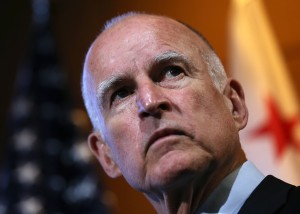
We're now 354 days from the rollout of the Affordable Care Act next Jan. 1. While the governor declared the state's participation in the Medicaid expansion at his budget unveiling yesterday, he also proposed two ways to handle that expansion.
Under one scenario, the state will continue to administer the program. Under the other, each of California's 58 counties will oversee running Medi-Cal, California's version of Medicaid, for its own residents.
The Affordable Care Act dictates that the federal government will pay 100 percent of the cost for those people newly eligible for Medicaid, and in both proposals, the state's position is that California counties will get some fiscal relief once those federal dollars start flowing.
But don't get too excited, counties.
California Secretary of Health and Human Services Diana Dooley yesterday referred to a "conversation" around "appropriate sharing" that needs to happen between the state and its counties around financial responsibilities.
"Conversation" might prove to be a euphemism for what could become a vocal debate between the state and the counties. And maybe between counties themselves.